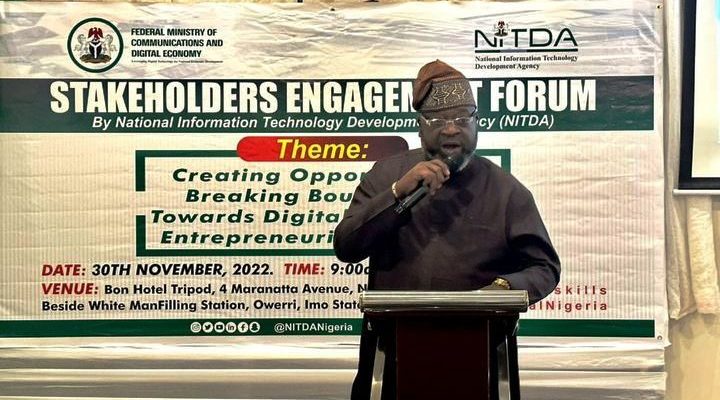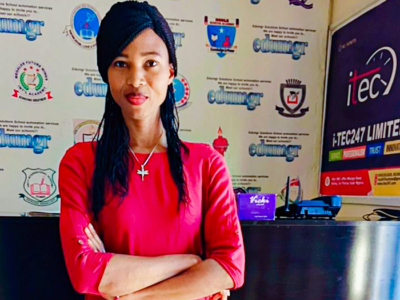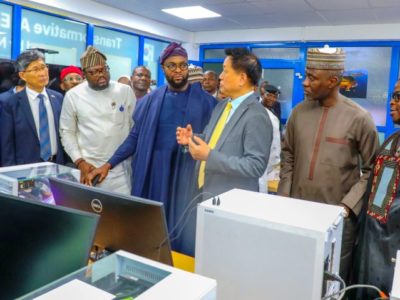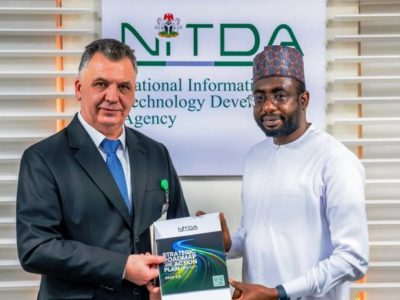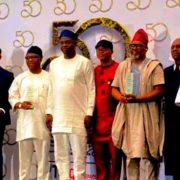The National Information Technology Agency (NITDA) in collaboration with Office of Digital Economy and e–Governance, Imo State Government has organised an ICT Stakeholders’ Engagement Forum in Owerri, Imo State.
Part of the objectives of the meeting is to establish sustainable collaborations and consistent channels for feedback as well as the exchange of ideas with stakeholders in line with the agency’s vision for national development.
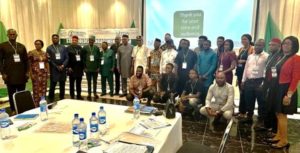
Participants rat the Imo meeting
Director General of NITDA, Kashifu Inuwa Abdullahi urged the stakeholders to use the meeting as a platform to pool knowledge, experience, and co-create solutions to help to further NITDA’s services to other stakeholders, especially at the grassroots.
RELATED: Digitisation programme of Federal Government could enhance IGR, says NITDA boss
“Throughout the twenty-one-year journey, we have had to look continuously at our mandate, reset our vision, and invigorate our mission. We have moved from being a highly centralised organisation to a functionally decentralised institution.
“Our aspiration is to be an organisation closer to stakeholders. We are also increasingly becoming a process-driven, data-dependent, and results-oriented organisation”, said Abdullahi who was represented by the Director, Zonal Offices Directorate, Mr. Babajide Ajayi.
The meeting which held under the theme ‘Creating Opportunities, Breaking Boundaries: Towards Digitisation and Entrepreneurial Evolution’ was attended by 81 stakeholders from three states in the south eastern part of Nigeria.
Abdullahi said strategic actions were already being taken in the implementation of critical areas of the National Digital Economy Policy and Strategy (NDEPS) even as he stressed that the meeting was part of NITDA’s continuous drive towards fostering national development through efficient IT governance in recognition of the expanding values of the digital economy.
Abdullahi explained that the NDEPS focuses on eight pillars that are critical to the development of the digital economy all of which encompasses Developmental Regulation, Digital Literacy and Skills, Solid Infrastructure, Service Infrastructure, Digital Services Development and Promotion, Digital Society and Emerging Technologies, Soft Infrastructure, and Indigenous Content Development and Adoption.
“The agency’s strategies and choices are pursued while always ensuring financial prudence – even in the most turbulent times and ensuring that we meet the objectives of national IT Governance, foremost of which is delivering value to our stakeholders,” the NITDA boss added.
According to him: “Some of the people-oriented programmes we have implemented in consultation with stakeholders and under the supervision of our parent Ministry, the Federal Ministry of Communications and Digital Economy, include the National Adopted Village for Smart Agriculture (NAVSA), the National Adopted School for Smart Education (NASSE), Digital Literacy Capacity Training for Persons Living with Disabilities, support for ICT Innovation Hubs, building of Community IT Centres, development of State IT policies, and a host of other activities.
“However, there is always the need to re-strategise in the face of new challenges and opportunities that the Digital Economy ecosystem affords. Therefore, the NITDA Strategic Roadmap and Action Plan (SRAP), 2021-2024, has been conceived to provide direction for the Organisation and a sound platform for mitigating the foreseen and unforeseen threats to the digital economy ecosystem.”
In his keynote address, Imo State Governor, Hope Uzodima, represented by the Commissioner, Imo State Ministry of Digital Economy and e-Government, Dr. Chimezie Amadi assured that the state would work closely with NITDA to further strengthen the foundation of digital infrastructure and broaden access to new opportunities.
Participants ranged from ICT experts, government representatives, memebers of the academia, startup ecosystems, ICT associations, technology solution providers, and Non–Governmental Organisations (NGOs).


